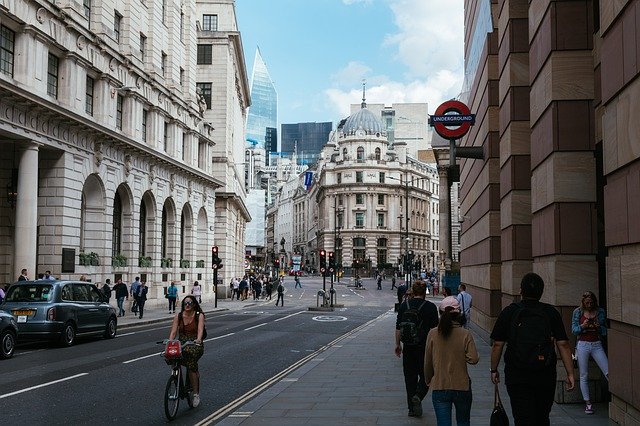Higher-than-predicted inflation saw the Bank of England raise interest rates by a quarter of a percentage point to 4.25 per cent, amid indications that the economy is holding up better than feared.
The Bank’s monetary policy committee voted to increase the base rate for the 11th consecutive time after two weeks of heightened unease in financial markets around the world.
It comes after an unexpected jump in the UK’s annual inflation rate in February, fuelled by food prices rise at a rate not seen for more than four decades.
The good news was that the Bank also said the outlook for the economy had improved to the extent that was no longer predicting a technical recession. Business reaction was swift and predicatbly cautious.
Claire Trachet, CEO of business advisory, Trachet, warned that thecurrent economic climate is still presenting major challenges for companies with limited cash reserves and the rate rise, coupled with an inactive IPO market, means scaling businesses – predominantly in tech – are finding it increasingly difficult to secure funding.
Yesterday’s surprise rise in inflation has brought into sharp clarity the sense of nervousness felt by the markets, and left the Bank of England with little option
“This is a significant concern for even healthy privately-owned companies, as declining shares of similar publicly traded firms can lead to a decrease in their value,” she said. “We know companies will have to make difficult decisions and give up a larger portion of their equity in order to raise the same amount of cash and expect this to result in a growing number of down rounds in the coming year.” Michael McGowan, Foreign Exchange at Bibby Financial Services, said thefight against inflation has intensified following move that “wasn’t necessarily expected at the start of the week given the instability in the banking sector following the issues around Silicon Valley Bank and the forced marriage of Credit Suisse and UBS.

Ondhia: Decision ‘on a knife-edge’
“But yesterday’s surprise rise in inflation has brought into sharp clarity the sense of nervousness felt by the markets, and left the Bank of England with little option, but to use the only tool they have available to dampen the UK’s inflation.”
He added that the “MPC decision may well have been a necessary evil to protect UK’s weakened economy, but it won’t feel like that in the short-term for small businesses struggling to maintain profitability. Higher interest rates will squeeze consumer spending and raise borrowing costs for businesses”.
Pierre-Antoine Dusoulier, CEO at iBanFirst, said the rate rise meant it was “clear that the UK is still dangerously close to falling into a recession”, adding: “This will be positive news for the pound as the higher interest rate will make it more attractive to investors. However, it will also leave banks in a state of disarray, many of which have already fallen victim to high interest rates.”
The stakes were so high with elevated tensions across the US and European banking systems and yesterday’s shock rise in inflation – this all undoubtedly turned the heat up on the Bank of England
Daniel Jones, Corporate and FX Dealer at Moneycorp said the decision “will result in even tighter trading conditions for UK SMEs, potentially wiping £12bn from the economy and pushing it over the edge. The Bank of England’s separate plans to end favourable lending treatment for small businesses will only add fuel to that same fire”.
Douglas Grant, Group CEO of Manx Financial Group, said: “It is yet another blow to businesses struggling to survive another cashflow squeeze. SMEs must take this as a reminder to review their existing lending structures and ensure they are prepared for further hardship. While improving GDP data provided a glimmer of hope for small businesses, the interest raise is a worrying numbers and indicates that a recession is likely to afflict the UK in 2023 as the Bank of England remains hawkish in its approach.”
Jatin Ondhia, CEO of Shojin described the decision as being “on a knife-edge”, adding: “The stakes were so high with elevated tensions across the US and European banking systems and yesterday’s shock rise in inflation – this all undoubtedly turned the heat up on the Bank of England, and it is telling that it opted to stick to its tough line of hiking interest rates to curb the cost-of-living crisis.

Jones: ‘even tighter trading conditions’
“Those hoping for a respite from tighter monetary policy may have a longer wait ahead than anticipated, as policymakers grapple with the dual task of confronting inflation and easing bank jitters.”
James Hickman, CCO of Ecospend, said the rate rise will “continue to have an impact on the success of UK businesses. With the cost of borrowing increasing, combined with changing consumer behaviour, businesses need to take stock of their operations and ensure they’re maximising efficiencies wherever possible” and Ciaran O’Malley, VP of Ecommerce at Trustly, said that while this may not come as a shock, it will continue to have a significant impact on UK businesses.
“While businesses will face higher borrowing costs, which will erode their margins, there may also be second-hand effects due to the increased price of goods from suppliers, meaning businesses have to increase their own prices or face further supply disruptions,” he said.
“With this in mind, it’s vitally important that businesses focus on how they can maximise efficiencies through their value chain in times of high interest. By implementing technology which drives operational efficiency, improves cashflow management and customer experience, businesses can mitigate against the impacts of rising rates.”

Aquilante: firms must remain resilient
Stubborn headline and core inflation in February forced the Bank’s hand, according to Tommaso Aquilante, Associate Director of Economic Research at Dun & Bradstreet.. “There are however good reasons to think that inflation will drop sharply in late 2023 to reach a new and happier medium,” he added.
“Booming energy prices and supply chain bottlenecks that contributed to the surge in inflation in 2022 are now gradually subsiding, and the steep price increases experienced last year won’t factor into this year’s inflation calculations.
“It’s worth keeping in mind that even if inflation drops to 2.9%, in line with OBR’s prediction, inflation would still be an eye watering 6% or higher year-on-year. This, in turn, will continue to have a negative impact on households’ finances and UK businesses’ purchasing power, and put pressure on businesses costs of the course of the year.
“In fact, more than a third (37%) of businesses we surveyed asserted that the overall cost of doing business this year would be a huge challenge.
“Businesses are going to have to focus on how they can remain resilient, productive and competitive as this turbulent period continues. Business liquidations are on the rise, costs remain high and financial conditions continue to tighten. This is where quality data insights can be useful to assess both risk and growth opportunities. Doing so can provide a competitive advantage and bolster business resilience.”
.





